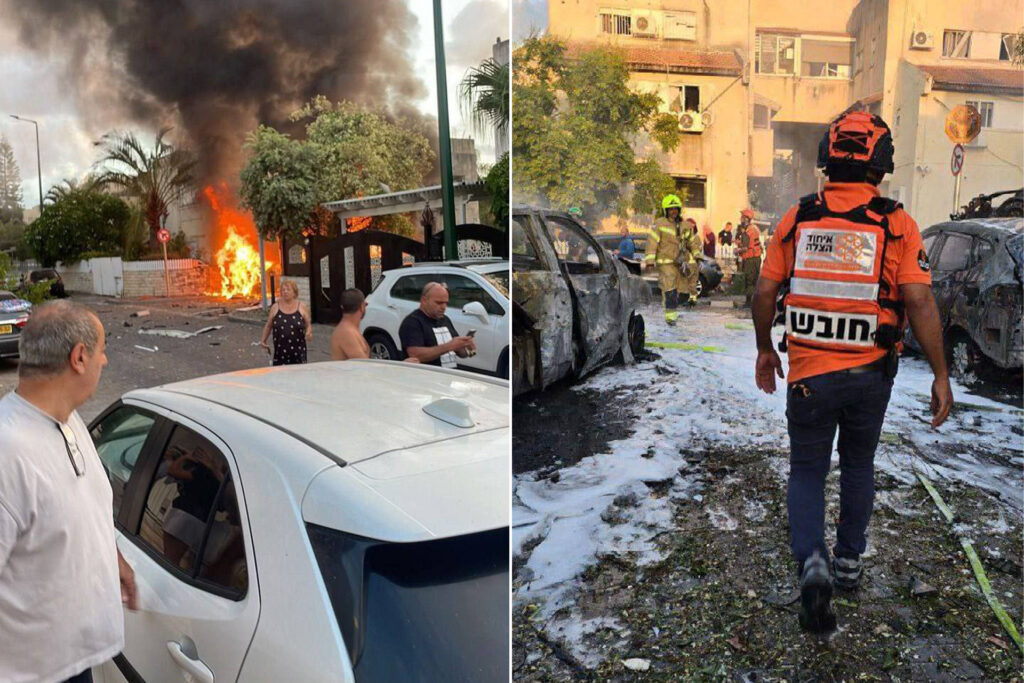Strategic and military expert, Major General Fayez Al-Duwairi, said that the Lebanese Hezbollah does not seek an open war with the Israeli occupation army, but it will not allow the rules of engagement and deterrence to be broken, suggesting two scenarios for future field developments.
Al-Duwairi explained – during his analysis of the military scene in the region – that Hezbollah is required to work in a balance between avoiding going into open war or breaking the rules of engagement and deterrence.
He pointed out that Israeli Prime Minister Benjamin Netanyahu wants a broad war to shuffle the cards in light of the lack of real movement and response from Iran since the assassination of the head of the political bureau of the Islamic Resistance Movement (Hamas) Ismail Haniyeh on its territory.
Al-Duwairi believes that Netanyahu broke the rules of deterrence after the recent strikes (the bombing of wireless communications devices and the assassination of important military leaders in Hezbollah).
He added that what he did was a blatant challenge, “so Hezbollah had to respond,” describing the party’s response as “a minimal response in terms of the type of missiles, range, and targets.”
Earlier today, Sunday, Hezbollah announced that it had bombed military sites in the northern Israeli city of Haifa with “Fadi 1” and “Fadi 2” missiles for the first time since the start of border clashes with Tel Aviv about a year ago. The bombing resulted in the injury of a number of Israelis and significant material damage.
Regarding the proposed scenarios for future developments, the strategic expert says that the first scenario may be the continuation of the current situation in terms of quantity and quality by the occupation army, such as continuing to launch intensive air strikes and carry out major assassinations, in addition to technical surprises such as the explosions of pagers and walkie-talkies.
According to Al-Duwairi, Israel aims through this scenario to have Hezbollah accept the Israeli conditions and implement UN Security Council Resolution 1701, which stipulates the withdrawal of its forces beyond the Litani River.
The military expert believes that the second expected scenario may be an Israeli ground invasion, as the Radwan Force – Hezbollah’s elite forces – is present in southern Lebanon and the Syrian Golan.
Al-Duwairi wondered, “Will Hezbollah, after the recent strikes it was subjected to, keep the elite forces in the Golan or will it withdraw them to reinforce its forces in southern Lebanon?”
He added, “If the Radwan force remains in the Syrian Golan, this scenario will tempt Netanyahu to expand the ground operation towards the east and north,” and continued, saying that the talk is about a double Israeli attack in order to achieve success in developing it.
Al-Duwairi assumed that Hezbollah would withdraw its elite forces from the Syrian Golan Heights due to the vast geographical area, and that Hezbollah’s defense method is based on defending strong combat points and nodes.
The military expert believes that between Hezbollah’s combat nodes “there may be room for maneuver for the occupation army, according to a scenario discussed by the commander of the Northern Military Region, which calls for the establishment of a buffer zone in southern Lebanon, the area of which has not yet been determined.”
Al-Duwairi concluded that the fighting in southern Lebanon will be different from the fighting in the Gaza Strip, adding that the occupation army has an old obsession, as it had previously reached the Litani and was stationed in that area for 20 years before withdrawing under the blows of the resistance.

